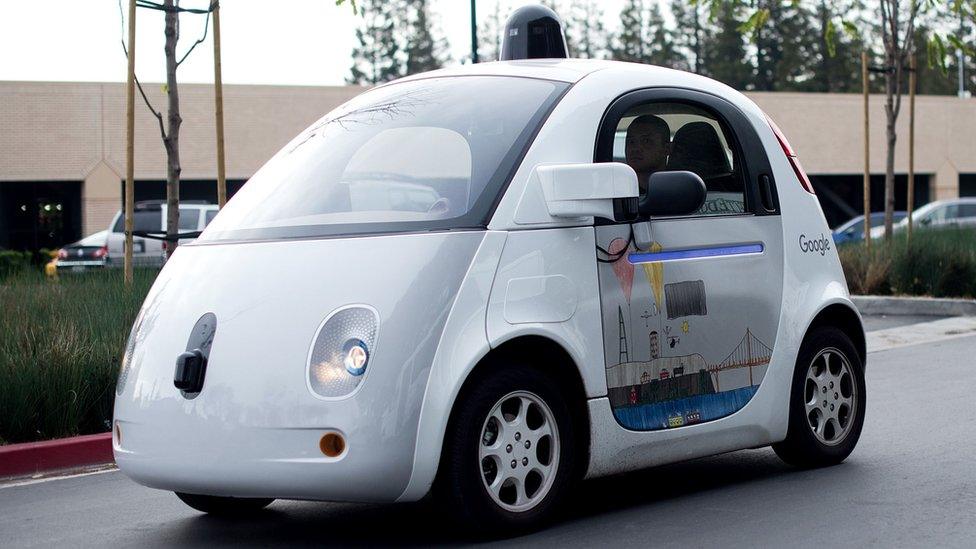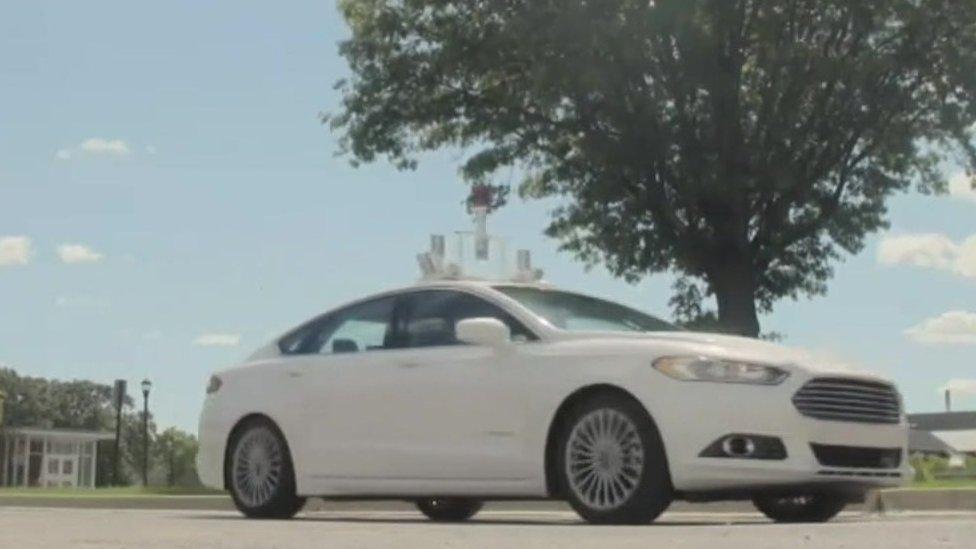Google creates new self-driving car company
- Published
- comments

Google has a car that operates without the need for a steering wheel
Google is putting its self-driving car technology into a new company which it will call Waymo, the firm has announced.
The new business, Waymo, will be owned by Google’s parent company, Alphabet.
It signals a push to commercialise the technology which Google has been developing for more than 10 years.
At a media event, the company showed the story of a blind man who was able to make a full trip using a prototype self-driving car.
The trip happened in 2015, but the company spoke about it for the first time on Tuesday.
"Steve Mahan rode alone in one of our prototype vehicles, cruising through Austin’s suburbs,” wrote Google’s John Krafcik.
"Steve is legally blind, so our sensors and software were his chauffeur."
Speaking about the formation of the new company, Mr Krafcik said: "We believe that this technology can begin to reshape some of the ten trillion miles that motor vehicles travel around the world every year, with safer, more efficient and more accessible forms of transport."
Mr Krafcik will become Waymo’s chief executive.
Making money
The company said it will try to apply the technology behind self-driving vehicles to other purposes.
This suggests increased urgency in finding immediate commercial uses for the technology which, so far, has only been used by Google in tests.
While other companies, most notably electric car maker Tesla, have managed to roll out elements of self-driving technology to real roads, Google has been taking a far more cautious approach.
The BBC goes along for a ride in Uber's self-driving car
The Waymo announcement could suggest that Google will deviate from its original goal of only offering 100% self-driving vehicles.
"We can see our technology being useful in personal vehicles, ride-sharing, logistics, or solving 'last mile' problems for public transport,” Mr Krafcik said.
The company did not respond to reports that it was abandoning making its own car in favour of working with other, perhaps more established, carmakers.
Doing so would be a quick and easy cost-cutting measure at a time when Alphabet is trying to rein in the costs of its so-called "other bets" - parts of its business that are seen to be highly innovative but which so far are not making money.
Follow Dave Lee on Twitter @DaveLeeBBC, external and on Facebook, external
- Published4 December 2016

- Published21 October 2016

- Published13 September 2016

- Published17 August 2016
- Published14 March 2016